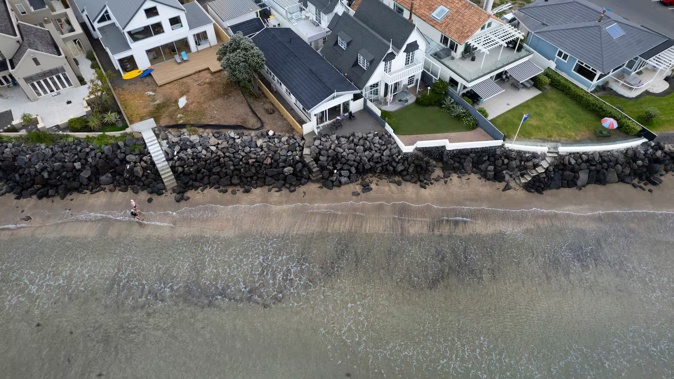
A major climate change poll has delivered a clear call to the Government: most Kiwis don’t want new development in risky areas.
Modelling suggests some 750,000 people, 500,000 buildings and billions of dollars of infrastructure are already at risk of extreme flooding, as has been seen in a slew of recent weather disasters.
How to prepare our vulnerable communities for a warmer and wilder world has proven a tricky issue for policymakers - with New Zealand largely still taking an ad hoc, council-by-council approach to managed retreat and property buy-outs.
But survey data released today by insurers AMI, State and NZI, however, suggests Kiwis overwhelmingly want action.
It found that more than two thirds of the 1005 people polled wanted more focus and resource put into the issue, with 80% in favour of avoiding or reducing development in high-risk locations.
Another 82% backed making buildings and infrastructure more resilient.
More broadly, the survey found 68% of Kiwis expected to be affected by climate hazards – with around nine in 10 expecting more frequent and extreme floods and storms.
The insurers’ chief executive, Amanda Whiting, said the extreme summer of 2023 had a “profound effect” and brought home the real impact of climate change on peoples’ lives.
“The number of claims and amount of money paid out only partially reflects the true social and economic cost of these events.
“We need to do a better job at reducing natural hazard risk, particularly for our most hazard-prone communities.”
As had been indicated in previous polls, a large number of Kiwis saw the Government as being the most responsible for climate action.
“The Government’s focus on adaptation and recent investment in flood protection is a good start, but we need to do more so that communities who are exposed to the impacts of climate change can be safe and resilient.”

IAG NZ chief executive Amanda Whiting.
The data also showed four in 10 respondents rated the Government’s climate action as poor – while less than a third thought the country’s response was on the right track.
Nearly two in five Kiwis weren’t confident that climate impacts could be reduced – while seven and 10 recognised that increasing extreme weather events would be a factor in rising insurance premiums.
Just under half agreed that policyholders should pay only for the risk they face, with only 8% believing that everyone should pay the same amount, regardless of risk.
The findings come as the insurance industry – which has recently seen years of record pay-outs – has been moving closer to risk-based pricing models.
The Government has meanwhile been working toward legislation around climate adaptation – but it’s not clear whether that will result in a national policy statement, or a new law as the former government proposed.
Climate Change Minister Simon Watts – who’s been approached for comment on the latest polling - has however signalled that a shift is needed, recently telling RNZ that the current ad hoc approach to managed retreat was “not a sustainable model”.
Adaptation was among five “pillars” of the Government’s newly-released climate strategy, stating that people should be better protected from severe weather events, and have “easy access to information and guidance” to potential risks.
Jamie Morton is a specialist in science and environmental reporting. He joined the Herald in 2011 and writes about everything from conservation and climate change to natural hazards and new technology.
Take your Radio, Podcasts and Music with you









